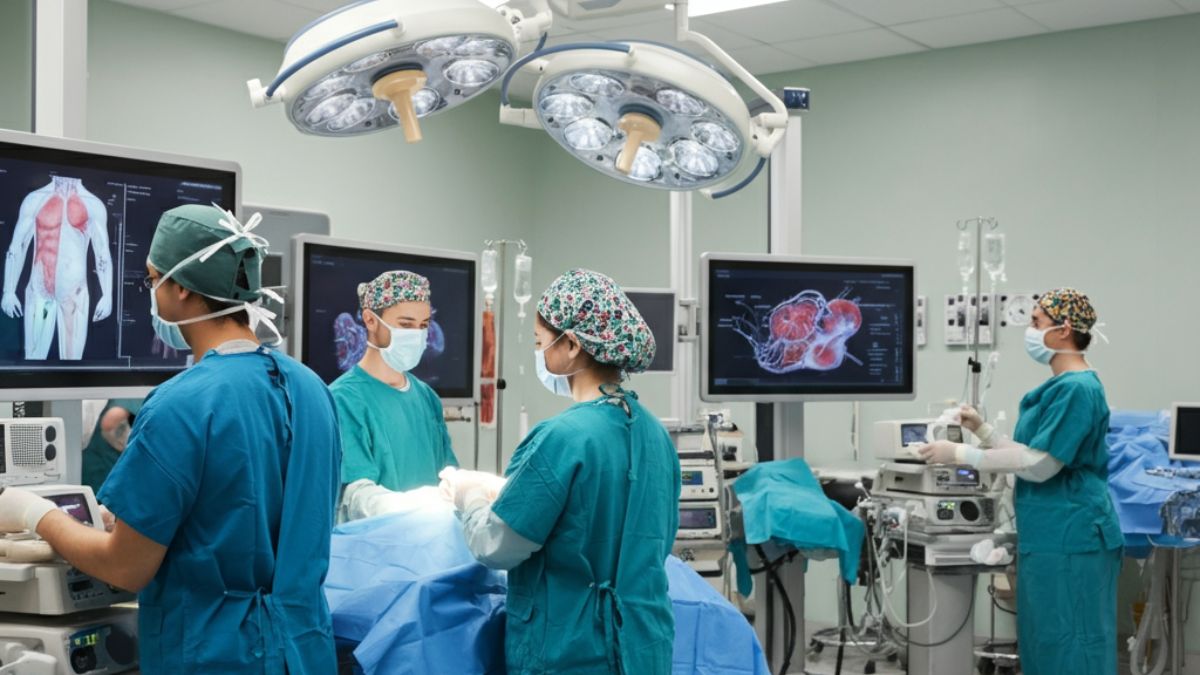Choosing a career in healthcare can be deeply rewarding, offering stability, purpose, and an opportunity to make a real difference in people’s lives. If you’re looking to break into this dynamic field without committing to years of extensive schooling, a surgical technology program may be the perfect pathway.
This guide will walk you through everything you need to know about surgical technology programs, including what they entail, the skills you’ll gain, and why they’re an excellent step toward a fulfilling healthcare career.
What is a Surgical Technology Program?
A surgical technology program is a vocational education pathway designed to prepare students for a critical role in the operating room. Surgical technologists, often referred to as “scrub techs,” are invaluable members of the surgical team. They ensure that procedures run smoothly by managing sterile environments, passing instrument to surgeons, and assisting in pre- and post-operative care.
Most surgical technology programs can be completed in 12 to 24 months, depending on whether you pursue a diploma, certificate, or associate degree. They combine classroom learning, hands-on labs, and clinical rotations to give students the foundational knowledge and practical skills they need to succeed.
Why Choose a Surgical Technology Career?
1. High Demand and Job Stability
Healthcare is one of the fastest-growing industries in the world, and surgical technology is no exception. The U.S. Bureau of Labor Statistics projects a 6% growth in surgical technologist employment through 2031, which is faster than the average for all occupations. With aging populations and advancements in medical technology, surgical technologists will continue to play a vital role in patient care.
2. Short Pathway to a Healthcare Career
Unlike many roles in healthcare that require extensive schooling and years of training, surgical technology programs offer a streamlined approach. You can graduate in as little as one year and begin working immediately, making it an ideal option for those looking for quick entry into the field.
3. Competitive Salaries
Surgical technologists earn competitive salaries, especially given the short training period. According to the Bureau of Labor Statistics, the median annual wage for surgical technologists was $49,710 in 2022. Many employers also offer benefits like healthcare, retirement plans, and reimbursement for further certifications.
4. Dynamic, Hands-On Work Environment
If you thrive in fast-paced, high-stakes settings, this career could be a perfect match. Surgical technologists play an active role in life-saving procedures, working closely with surgeons, nurses, and anesthesiologists. Every day presents a new challenge and an opportunity to make a direct impact on patient outcomes.
What Does a Surgical Technology Program Include?
1. Core Curriculum
The core curriculum of a surgical technology program covers a mix of technical knowledge and practical skills. Key subjects include:
- Anatomy and Physiology: Understanding the human body is essential for assisting in surgical procedures.
- Sterile Techniques: Learn how to maintain a sterile environment to prevent patient infections.
- Surgical Procedures: Gain knowledge of common and specialized surgeries, from appendectomies to organ transplants.
- Instrumentation: Familiarize yourself with surgical instruments and equipment, and learn how to handle them effectively.
2. Hands-On Labs
Surgical technology isn’t just about theory—it’s a highly practical field. Programs typically include lab sessions where students can practice setting up operating rooms, using surgical tools, and following sterile protocols in a controlled environment.
3. Clinical Rotation
During the clinical phase of the program, students are placed in actual healthcare settings, such as hospitals and outpatient surgical centers. This real-world exposure allows students to apply their skills, build confidence, and gain experience working with healthcare professionals and patients.
4. Certification Preparation
Many programs are designed to prepare students for the Certified Surgical Technologist (CST) exam, administered by the National Board of Surgical Technology and Surgical Assisting (NBSTSA). While certification isn’t always mandatory, it significantly enhances your employability and earning potential.
How to Choose the Right Surgical Technology Program
1. Accreditation Matters
Ensure the program is accredited by a recognized body, such as the Commission on Accreditation of Allied Health Education Programs (CAAHEP). Accreditation ensures the program meets high educational standards and makes you eligible for certification exams.
2. Program Length and Format
Consider your timeline and schedule. Do you prefer a fast-track diploma program or a more in-depth associate degree? Some schools even offer hybrid options, allowing you to complete part of the coursework online.
3. Clinical Opportunities
Clinical rotations are a crucial part of your training. Research which hospitals or surgical centers partner with the program, and look for opportunities to gain experience in your areas of interest.
4. Support for Students
From financial aid to career services, choose a program that supports its students every step of the way. Some schools offer one-on-one coaching, resume workshops, and job placement assistance to help you succeed.
What Skills Will You Gain from a Surgical Technology Program?
A surgical technology program equips you with both technical and soft skills essential for success.
Technical Skills
- Knowledge of sterile techniques and infection control
- Familiarity with operating room protocols
- Proficiency in handling surgical instruments and equipment
Soft Skills
- Attention to Detail: Precision is critical when setting up instruments or assisting a surgeon.
- Communication: Surgical technologists must work seamlessly with the rest of the team.
- Stress Management: The operating room can be a high-pressure environment, requiring focus and composure.
What Happens After Graduation?
1. Obtain Certification
While not mandatory everywhere, becoming a Certified Surgical Technologist (CST) demonstrates your expertise and commitment to the field.
2. Explore Job Opportunities
Upon completing your program, you can apply for roles in hospitals, outpatient surgical centers, labor and delivery units, and even private practices. Career advancement opportunities include becoming a surgical first assistant, instructor, or even transitioning into hospital administration.
3. Continuing Education
Surgical technology is a fast-evolving field. Continuing education and certifications can help you stay up-to-date with the latest developments, such as robotic surgery or advanced imaging techniques.
Why a Surgical Technology Program is Worth It
Whether you’re stepping into the healthcare field for the first time or seeking a new challenge, a surgical technology program offers a fulfilling and practical path toward a stable career. The demand for skilled professionals, combined with the opportunity to make a tangible impact, makes this field an excellent choice for those ready to wield a scalpel—or more accurately, pass one.
If you’re considering joining the healthcare sector, make the leap today and explore accredited surgical technology programs near you. The operating room is waiting—are you ready?











